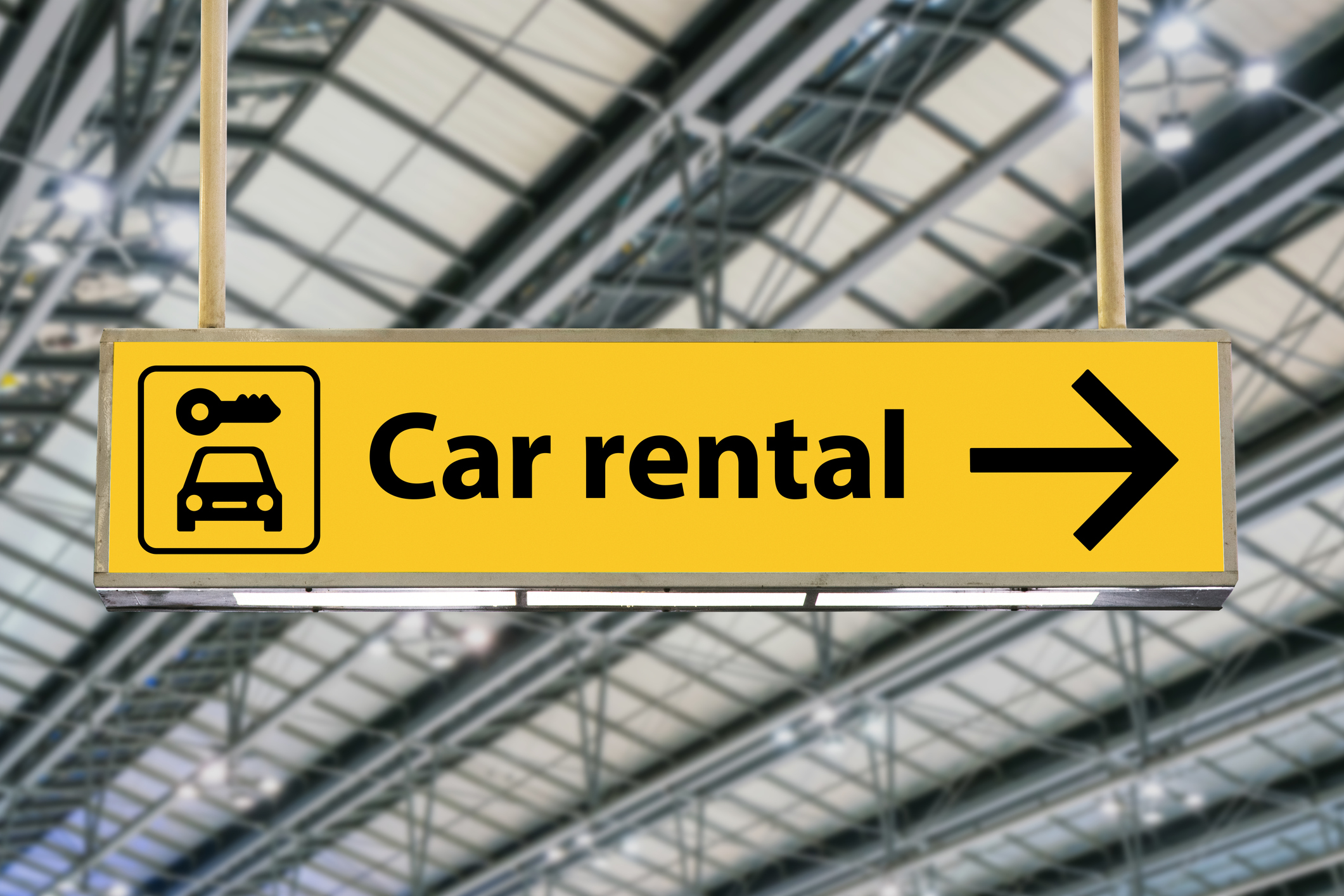15 Money-Saving Travel Tips for Retirees
Globetrotting in your golden years doesn't have to cost a fortune. Here are 15 ways to cut down on your travel expenses.

Profit and prosper with the best of Kiplinger's advice on investing, taxes, retirement, personal finance and much more. Delivered daily. Enter your email in the box and click Sign Me Up.
You are now subscribed
Your newsletter sign-up was successful
Want to add more newsletters?

Delivered daily
Kiplinger Today
Profit and prosper with the best of Kiplinger's advice on investing, taxes, retirement, personal finance and much more delivered daily. Smart money moves start here.

Sent five days a week
Kiplinger A Step Ahead
Get practical help to make better financial decisions in your everyday life, from spending to savings on top deals.

Delivered daily
Kiplinger Closing Bell
Get today's biggest financial and investing headlines delivered to your inbox every day the U.S. stock market is open.

Sent twice a week
Kiplinger Adviser Intel
Financial pros across the country share best practices and fresh tactics to preserve and grow your wealth.

Delivered weekly
Kiplinger Tax Tips
Trim your federal and state tax bills with practical tax-planning and tax-cutting strategies.

Sent twice a week
Kiplinger Retirement Tips
Your twice-a-week guide to planning and enjoying a financially secure and richly rewarding retirement

Sent bimonthly.
Kiplinger Adviser Angle
Insights for advisers, wealth managers and other financial professionals.

Sent twice a week
Kiplinger Investing Weekly
Your twice-a-week roundup of promising stocks, funds, companies and industries you should consider, ones you should avoid, and why.

Sent weekly for six weeks
Kiplinger Invest for Retirement
Your step-by-step six-part series on how to invest for retirement, from devising a successful strategy to exactly which investments to choose.
Jetting off to different parts of the world may sound extravagant, but "travel does not need to be expensive and drain your savings," says Sahara Rose De Vore, a wellness travel coach and founder of The Travel Coach Network.
You need to be smart about how you spend your travel dollars, and these 15 money-saving travel tips can help you do that.

1. Be aware of a fluctuating dollar
As of mid-December 2025, the U.S. Dollar Index (DXY), which tracks the dollar's value against six major currencies, has declined 8.1% year-to-date, and now hovers around 98.2 after dipping to lows near 96 in September 2025. That follows a period earlier this year marked by an initial post-election rally in late 2024.
Still, the dollar packs a punch in many countries, making everyday adventures seem like steals. Nothing beats that thrill of stretching your dollars further. The weaker the local currency, the more affordable it becomes to visit if you're carrying USD.

2. Watch airfares for the sweet spot
It's a good idea to plan your trip as far in advance as possible, says Nick Ewen, senior editorial director of The Points Guy, a travel website. "I'm saying planning, not booking. Airlines in the U.S. will open their schedule about 11 months out, but you don't want to book your tickets 10 months and 29 days before you go." Instead, start researching prices for when you want to travel so that you'll recognize a good deal when you see one. Then pounce on it.
Use tools like Skyscanner or Hopper to get price drop notifications, to help ensure you book at the right time.
The sweet spot for booking a plane ticket is usually about one to three months for a domestic trip and two to eight months for an international flight, says Willis Orlando, senior product operations specialist for Going. It alerts you when fares from an airport drop significantly below their average prices, Orlando says. The site has a free option that provides limited alerts for economy class deals in addition to two paid tiers of alerts.

3. Use a different airport
It's tempting to book your entire trip with one airline, departing from the airport closest to home, but that may not be your most cost-effective option. In fact, the cheapest airfares aren't always from large international airports.
Airlines sometimes cut prices to a specific destination from smaller international airports in secondary U.S. cities, Orlando says. Because the international leg of your trip is typically the most expensive, look for deals from other airports besides the one you usually use, even if it means flying out of a different city. Then consider the cost of a connecting flight. Your savings could be more than enough to cover the cost of your domestic flight, Orlando says.
Pay attention to an airline's hub cities, where the carrier's flight operations are concentrated, as the location of the flight can affect pricing. Prices are often higher for a specific carrier's hub cities because the airline dominates service there. Other airlines, however, sometimes slash prices on popular routes from the competitor's hub to steal its business.
"This behavior has resulted in some of the absolute best flight deals we've ever seen, as tit-for- tat price slashing has resulted in ever-lower fares," Orlando says.

4. Embrace your flexible schedule
Freed from the tyranny of the school calendar and the workweek, retirees can fly at off-peak times and days when prices are lower, typically a Tuesday or Wednesday. Historically, business travelers heavily booked Sunday and Thursday evening flights, leading to higher prices. Although this trend has lessened somewhat, according to Ewen, you can still find better fares by avoiding those days.

5. Avoid unnecessary fees
Some of the best travel credit cards in 2025 don't charge foreign transaction fees, which can typically add around 3% to every purchase made outside the U.S. "If you think about the number of times you are swiping that card, that can add up," Ewen says. If your card charges such a fee, switch to one that doesn't.
For instance, the Capital One Venture Rewards Credit Card has no foreign transaction fees, but does charge an annual fee of $95. It offers a competitive sign-up bonus and five miles per dollar spent on hotel stays, vacation rentals, and rental cars booked through Capital One Travel.
The Citi Strata Premier℠ Card also has an annual fee of $95, but charges no foreign transaction fees — great for globe-trotting retirees. You will earn 60,000 bonus points after spending $4,000 in the first three months of account opening, which is redeemable for $600 in gift cards or travel rewards on thankyou.com.
Unfortunately, you might be hit with different fees using an ATM abroad, including one from the foreign bank that owns the machine. Meanwhile, your bank in the U.S. can charge a foreign ATM withdrawal fee often totaling $7 to $10 or more per withdrawal, depending on the bank, as well as a foreign ATM transaction fee, usually about 3% of the transaction, to cover any currency conversion costs. Ask your bank what it charges and if you can avoid those fees. Some financial institutions may waive or reimburse you for at least part of these costs depending on the type of account you have.
Whether you’re heading across the country or overseas, travel cards help you earn while you explore. See Kiplinger’s best travel card picks, powered by Bankrate. Advertising disclosure.

6. Get rewarded for spending
Wouldn't it be nice if the money you spent on travel generated a return for you? It can, depending on your credit card. Some rewards cards let you earn points or miles that can be redeemed to pay for travel expenses every time you swipe your card. Look for one with no annual fee, though the trade-off may be fewer rewards than a card with a fee.
The Wells Fargo Autograph Visa card has no annual fee and a sign-up bonus of 20,000 points if you spend $1,000 in the first three months. You'll also earn 3 points per dollar spent on travel, hotels, plane tickets, public transit, cruises, dining and car rentals. All purchases are worth one point per dollar, and you can redeem them for travel, gift cards in $25 increments, or statement credits. Plus, enjoy 0% Intro APR for 12 months from account opening on purchases and balance transfers.

7. Don't rent a car
As tempting as it is to hop in the car rental line and peel out with your own set of wheels, that can be a costly mistake. You may be better off exploring a city on foot, via Uber or Lyft, or by bike. Many countries also have wonderful public transportation systems that are easy to navigate.
When mass transit can't take you everywhere you'd like, perhaps a cab or ride service can. "All of that brings you closer to the community," says Janice Waugh, founder of Solo Traveler, a website providing information about traveling alone. "You can have great conversations with a taxi driver."
If you decide to rent a car, you can sign up for autoslash.com, which tracks your car rental and alerts you if a better deal is available.
If you are traveling in the U.S. by car and staying in a hotel, look for one 10 to 15 miles outside of a city, says Patti Maghamfar, co-founder of One Road At a Time. Not only will the accommodations be cheaper, but the parking will often be free, she adds.

8. Consider other lodging besides hotels
With the rise of vacation rental sites like Airbnb and Vrbo, travelers can now easily forego traditional hotels and find wonderful condos, apartments, houses or even just a room to rent, making overnight stays sometimes cheaper.
Bus travel planner Busbud compares hotel and Airbnb rates in popular cities here and abroad. A recent survey by the comparison site found that Airbnbs were cheaper in seven of 12 U.S. cities. Airbnb fared even better in Europe and Australia and was cheaper than a hotel in eight of nine cities analyzed.
De Vore likes hostels, which aren't just for students backpacking through Europe. Many hostels offer private rooms with a bathroom -- not just shared dorm rooms -- at low prices. She recommends hostelworld.com and booking.com for finding budget accommodations.

9. Land a house-sitting gig
Travelers staying in one location for a longer period might consider becoming house sitters, Waugh says. In exchange for house sitting and perhaps caring for a pet, you can stay in the house for free. Retirees are often preferred as house sitters because they're generally experienced homeowners.
"You know there are electrical breakers in the house. You know that when it gets cold, the pipes will freeze," Waugh says.
Housecarers.com connects travelers with house-sitting gigs. Recent travelers included the McSkimmings. They had five months to allot for house sitting in the UK, and were thrilled when they were able to find five house sits. Along the way, they minded pigs, geese, miniature Dexter cattle and two adorable Border Collies.
Ms. Batty has been a house sitter since 1999. She has visited seven different countries, and reports that her favorite house sits are in Greece, France and Italy. On a recent house sit in Greece, she felt one with her neighbors and even got into whitewashing steps and walls in Greece.
TrustedHousesitters, Nomader and MindMyHouse are other well-used platforms.

10. Supplement meals with a grocery run
One of the first stops to make while traveling is to a grocery store. You have options when you stay at a vacation rental. Keeping fixings for breakfast on hand will save around $20 per day. Farmers' markets are also great for picking up some fresh fruit and vegetables for lunch or dinner instead of dining out at a sit-down restaurant.
But you don't have to give up restaurants entirely. Experienced travelers Tom Bartel, 69, and his wife, Kris Henning, 68, of Minneapolis, ask hotel employees where they like to eat. "You will find little neighborhood gems that are reasonably priced, so you spend $10 to $15 rather than $30 to $40," Bartel says.

11. Leverage your memberships
Your gym, alumni group, or other memberships and organizations you may have can sometimes provide discounts, Waugh says.
For example, AAA members get discounts for hotel stays, flights, cruises, and car rentals. The nonprofit also offers exclusive travel packages to members. The organization sometimes runs discounts on membership dues. Right now, you can save up to $500 per person on a tour of the South Pacific. However, specials change all the time, so it's best to log on regularly.

12. Ask for an upgrade
Businesses in the travel industry will sometimes waive fees or provide additional perks on request. Some seasoned travelers have found that hotel managers are often willing to waive parking fees.
Asking at check-in is one of the most obvious and effective strategies for getting that free upgrade. Generally, hotels upgrade your booking based on status before arrival.
Upgrades are limited during peak travel season, and a hotel can only accommodate a finite number before running out of upgraded rooms. During peak times, there are likely to be more elites at any given property and guests who pay for upgraded rooms outright.

13. Hang out with locals
Packaged tours can be a fantastic but pricey way to see a destination. Instead, meet up with locals who may be willing to show you the sights, Waugh says. She recommends signing up for Meetup, a free service that connects people from all over the world with similar interests.
Another site, Women Welcome Women Worldwide, aims to foster friendships between women all over the world, and a great way to connect with locals. Through the U.K.-based organization, travelers contact hostesses before setting off and arrange to meet once they get to the destination. The service is free, though an initial donation of about minimum £47 sterling or equivalent in your own currency is recommended.
During a trip to northern Sweden, mutual friends introduced Bartel, who does most of the photography for his and Henning's travel blog, "Travel Past 50," to a renowned photographer known for his pictures of celestial events and the night sky. Bartel met up with the photographer one night and they drove around looking for interesting skies to photograph.
"That was an experience that didn't cost me a penny and I got to hang out with one of the best sky photographers in the world," he says

14. Travel in the shoulder season
When looking for money-saving travel tips, many savvy travelers will advise retirees to avoid peak season crowds and prices by traveling in the off-season, usually in the spring or fall. The weather is often still pleasant, and you’ll likely find better deals on travel, hotels and dining.

15. Get travel and health insurance
While no one hopes to have to use it, travel insurance can help protect you from unexpected medical expenses, trip cancellations and lost luggage. Even if you have a U.S. health insurance plan, most plans provide little or no coverage when traveling abroad. Medicare does not provide coverage abroad either.
Although plans differ somewhat, most travel insurance covers emergency medical expenses, such as ambulance service, doctor and hospital bills. Prescription medications, accidental death and dismemberment, and 24-hour assistance services may also be covered under your plan.
Policies average from $40 to $80, according to Travelers.com, but higher coverage limits and longer coverage terms typically increase the cost of the policy. Check out SafetyWing to find the best rates.
Profit and prosper with the best of Kiplinger's advice on investing, taxes, retirement, personal finance and much more. Delivered daily. Enter your email in the box and click Sign Me Up.
Jackie Stewart is the senior retirement editor for Kiplinger.com and the senior editor for Kiplinger's Retirement Report.
- Kathryn PomroyContributor
- Donna LeValleyRetirement Writer
-
 Stocks Sink With Alphabet, Bitcoin: Stock Market Today
Stocks Sink With Alphabet, Bitcoin: Stock Market TodayA dismal round of jobs data did little to lift sentiment on Thursday.
-
 Betting on Super Bowl 2026? New IRS Tax Changes Could Cost You
Betting on Super Bowl 2026? New IRS Tax Changes Could Cost YouTaxable Income When Super Bowl LX hype fades, some fans may be surprised to learn that sports betting tax rules have shifted.
-
 How Much It Costs to Host a Super Bowl Party in 2026
How Much It Costs to Host a Super Bowl Party in 2026Hosting a Super Bowl party in 2026 could cost you. Here's a breakdown of food, drink and entertainment costs — plus ways to save.
-
 9 Types of Insurance You Probably Don't Need
9 Types of Insurance You Probably Don't NeedFinancial Planning If you're paying for these types of insurance, you may be wasting your money. Here's what you need to know.
-
 Why It's Worth Booking a Winter Vacation
Why It's Worth Booking a Winter VacationTravel Smart In the early months of the year, travel demand dips — and so do prices.
-
 5 Ways to Save on a Trip to the 2026 Olympics in Italy
5 Ways to Save on a Trip to the 2026 Olympics in ItalyA guide to going to the Milan-Cortina 2026 Winter Olympics without breaking the bank.
-
 The Best (and Worst) Airlines for Flight Delays and Cancellations
The Best (and Worst) Airlines for Flight Delays and CancellationsWhich airlines should you book and which should you avoid if you want to make it to your destination on time?
-
 Four Luxury Spa Resorts for Well-Heeled Travelers
Four Luxury Spa Resorts for Well-Heeled TravelersWe hand-picked these U.S. luxury spa resorts for their serenity, amenities and dedication to the comfort of older travelers.
-
 Child-Free Cruises Perfect For Your Retirement Celebration
Child-Free Cruises Perfect For Your Retirement CelebrationHow to find a bespoke ocean or river vacation for adults. Many of these options are smaller, charming river cruises, expeditions, or niche experiences.
-
 Noctourism: The New Travel Trend For Your Next Trip
Noctourism: The New Travel Trend For Your Next Trip"Noctourism" is a new trend of building travel and vacations around events and plans that take place at night. Take a look at some inspiring noctourism ideas.
-
 My Husband and I Retired at 67 With $3.2 Million, But He's Frugal About Travel. How Can I Convince Him to Loosen Up?
My Husband and I Retired at 67 With $3.2 Million, But He's Frugal About Travel. How Can I Convince Him to Loosen Up?We asked financial planning experts for advice.

